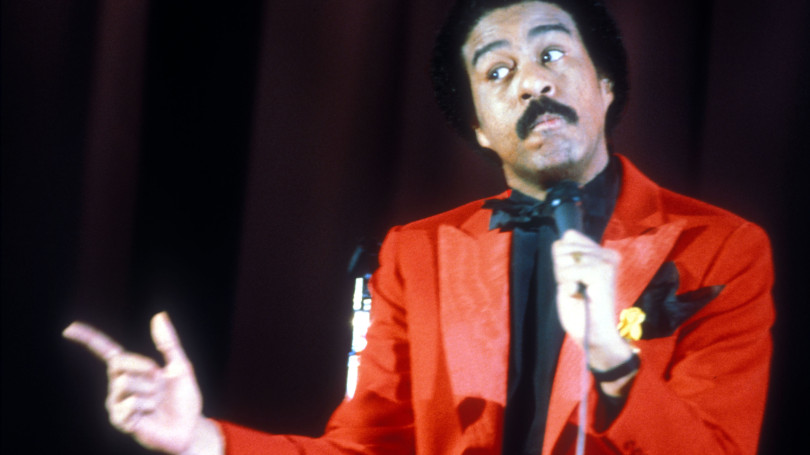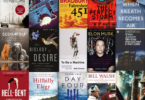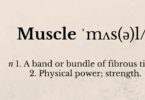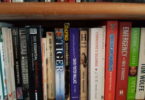Pop quiz, hotshot: assuming we haven’t all been destroyed by climate change/malevolent super-AI/antibiotic-resistant bacteria/international drone-war by then, which of the following books do you expect to still be widely read in the next hundred years?
A: The Republic, Plato
B: 1984, George Orwell
C: A Brief History Of Seven Killings
Easy, no? Assuming you agree with everyone else I’ve asked this question, you’re picking Plato to survive the longest, and I’m doing the same. The thinking is simple: Plato’s book has already survived for nearly two and a half millenia (it was published in 380BC), so it’s probably going to make it a bit longer. Orwell’s chances are decent (published in 1949, since you ask), but last year’s Booker Prize winner? Well, maybe you knew the name of it, but will you remember it by 2020? Will most people?
This is a simplified version of a theory called the Lindy Effect, developed by mathematician Benoit Mandelbrot but named after a New York diner where standup comics used to hang out. The theory, as it relates to comedians, is pretty simple: “the future career expectations of a television comedian is proportional to the total amount of his past exposure on the medium” – and, anecdotally, it’s fairly true. But there’s an obvious objection to that version: comedians die.
Ideas and new technologies don’t, and that’s where things get interesting.
Nicolas Taleb, whose work revolves around the idea that predicting stuff is difficult, and that therefore making ourselves ‘antifragile’ to unforeseeable events is our best course of action, suggests that we can use the Lindy Effect to make an informed guess about which technologies will survive over future decades. Books, wine and chairs, for instance, have all survived for centuries, and so it’s fair to predict that they’ll survive for centuries to come. E-readers and alcopops are relatively new inventions, so it’s less clear if they’ll do as well. This, Taleb argues, is the best way of predicting the future: it’s very, very difficult to tell which ideas and technologies are going to arrive in the next few years (how come nobody foresaw wheels on suitcases being a thing?) but slightly easier to guess which ones will survive.
So: how does this relate to the constant search for the Next Big Thing?
Okay: like most people, I am a sucker for new stuff. At Oscar season I merrily watch turgid biopic after dreadful period drama, forgetting that this is the same stuff the Academy deems worthy of a nod every single year, and that most of it is awful. When it’s Booker prize season – well, I don’t actually read many of the books, but I always feel like I should. Video games, self-help books, museum exhibitions, burger places, Netflix-produced TV series: you can only keep cranking up the speed of the pop-culture treadmill for so long until it all gets too much and you fly off the back and land in a heap. You can’t keep up with everything: not with half of the world’s websites declaring new ‘Must’ watches every day.
Fortunately, you don’t have to.
Here’s my new mental shortcut for dealing with this stuff: the longer an idea/film/book/game has stuck around in the popular consciousness, the more value you’re probably going to get out of it, in the long run. Instead of scrambling to watch/read/try the latest hot thing, switch your default option to the old, well-established thing. It’s more likely to be worth your time.
Here’s how I’m doing this in practice:
Reading old self-help books, not new ones. If there’s one self-help book I’d recommend to anyone, it’s How To Make Friends And Influence People, published in 1936. New self-help books haven’t had their ideas put to the test yet: HTMFAIP because its advice is timeless, simple, and effective.
Old movie Sundays. Instead of dropping £30 at the cinema to see films that have about a 50/50 chance of being good, my wife and I have started this tradition: every Sunday, we take it in turns to pick a pre-1970s film that’s stood the test of time. Look at it this way: about three years ago, everyone was scrambling to see Lincoln – now, nobody gives a shit whether you’ve seen it or not. By contrast, you are always going to look like a philistine if you haven’t seen Casablanca.
Going to see stuff that’s been around for centuries. In London, where I live, you could go to a new gallery, museum or cafe every day, forever, and never run out. The catch? Loads of them are awful: but it’s hard to go wrong by checking out the classics at the National Gallery or the Darwin wing at the Natural History Museum.
Listening to old music. Again: you could spend your whole life worrying about new music: some people do, and if it makes them happy, that’s fine. But if you’re looking for a change of pace, there’s a lot to be said for chucking on some old stuff that you’ve never heard before (I’m listening to a lot of Sam Cooke at the moment, but that’s just me).
None of this is an exact science, but it’s actually gone a long way towards reducing my hipster anxiety about keeping up with the next big thing.
Now, a couple of questions that I get when I try to explain this to people:
1. Are you saying that all old stuff is automatically good?
No. Some things (fascism, creationism, Charlie Chaplin films that aren’t The Great Dictator) have managed to survive for quite a while despite being terrible ideas. The Lindy Effect just suggests that they’ll be around for a while yet. Sorry, Richard Dawkins.
2. Are you saying I should stop watching/reading/listening to/worrying about anything ‘new’?
Definitely not. If you like Will Ferrell films and experimental post-rock (and as my long-suffering wife knows, I love both), have at it. But if you don’t, then don’t worry if everyone else is telling you that you should be into them: chances are they’ll have forgotten about it soon.
3. How does this all work with lifting weights?
Really, really well. Look at it this way: fads in training come and go at astonishing speed, but what works is – at a basic level – very well established, and extremely unlikely to change. Yes, possibly the brand-new training modality you’re going to try (foam-rolling every day, tempo training, POSE running) will work: or possibly it won’t. Possibly it has side-effects that you haven’t anticipated, or problems that – because it’s relatively new and untested – haven’t become clear yet.
An example? Sure.
Look at boxers. For decades, boxers have done loads of roadwork, sometimes running up to 10k a day. Recently, there’s been a movement away from this in certain gyms, with S&C coaches (who often don’t actually box) reasoning that high-intensity interval training can achieve similar (or better!) physiological adaptations in much less time. But, it turns out, this isn’t entirely true: not only is the aerobic system much more ‘trainable’ than the anaerobic, but it also contributes to regenerating the two anaerobic systems so they can produce energy again, and is essential for phosphocreatine resynthesis during recovery from high-intensity exercise. Yes, that’s a lot of science (you can read the long version at Muay Thai scholar (or in the excellent work of Joel Jamieson), but most top-level boxers manage just fine without worrying about it: they do their much-derided long, low-intensity efforts, and then beat the crap out of the guys who do HIIT all the time and gas out halfway through the third round.
What does this mean? It means that if someone’s telling you to throw out something that’s worked for decades with the promise that whatever they’re doing works better, the burden of proof is very much on them. It means that if you’re unsure what to do, then doing the stuff that has worked, for everyone who has tried it, for centuries (picking up something heavy and carrying it has a lineage that goes back to Milo of Croton: Bosu balls do not), is unlikely to take you far wrong. And, of course, it means that if any endurance ‘coaches’ tell you your favourite marathon champion would be ‘even faster’ if they reduced their training volume or changed their running form, you can safely call them an asshat.
Here’s the TL;DR version of this, as it relates to training (but also everything else):
If you’re not sure what to spend your time on, the old thing is probably a sounder investment than the new thing.
And, look, if you’re after a standup comedian to watch, you aren’t going to go wrong with someone old-school. Richard Pryor kicks the ass off Russell Howard any day.
HOMEWORK: Watch a pre-70s film, listen to a pre-40s album, and start a pre-1900s book this week. And check out Richard Pryor talking about boxing. Dude knew how to take a punch.








Interesting article, thanks. I particularly like your boxing/lifting weights example.
Hi Joel,
Long time reader second time poster. Really enjoyed this one as I’ve also got an affinity for old things that stand the test of time; stoicism, blues music and bench pressing to name a few.
Was just wondering- have you ever considered trying to get your readers together at an event/host an event?
Thanks,
Matt
Hi Matt, sorry this has taken me an age to reply to. I’ve considered a couple of things – but I think my readership’s slightly dispersed to be honest, though. What kind of thing, in particular, would you be up for?